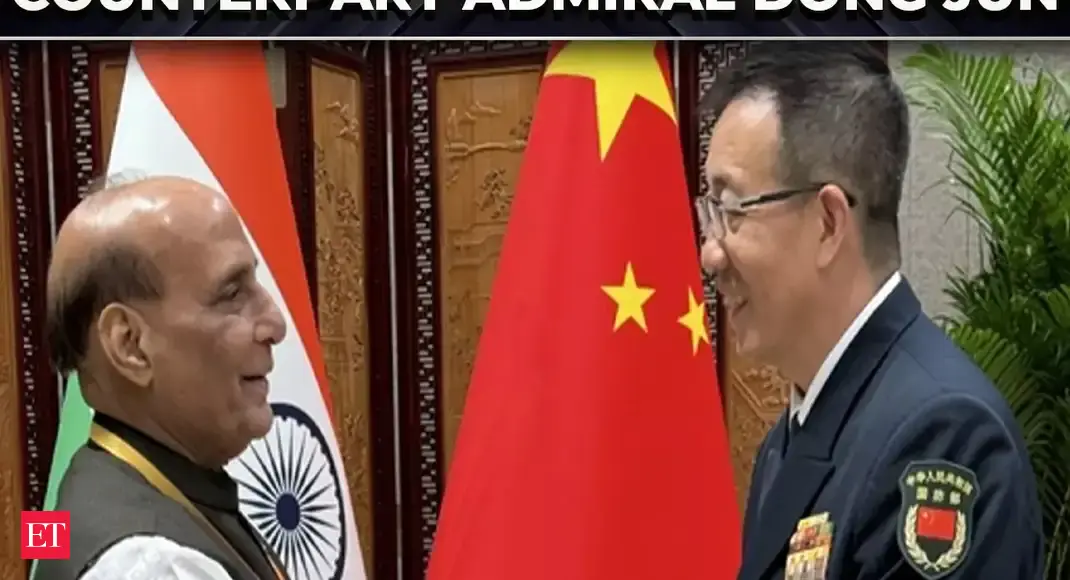

Amidst strained relations, Defence Minister Rajnath Singh engaged in bilateral talks with his Chinese counterpart, Admiral Dong Jun, on the sidelines of the Shanghai Cooperation Organisation (SCO) Defence Ministers' Meeting in Qingdao, China. The meeting occurred as India took a firm stance by refusing to endorse a joint communique at the SCO meeting, highlighting the complex interplay of diplomacy and security concerns within the regional bloc.
Singh conveyed that it is crucial for both nations to "maintain this positive momentum and avoid adding new complexities in bilateral ties." He also expressed his happiness about the resumption of the Kailash Mansarovar Yatra, a significant pilgrimage for Indian devotees, after a hiatus of nearly six years. This resumption could be viewed as a positive step in people-to-people connections. Prior to this meeting, National Security Advisor Ajit Doval met with Chinese Foreign Minister Wang Yi in Beijing to discuss India-China relations, emphasizing the need to promote overall development, including greater people-to-people ties.
However, overshadowing the diplomatic engagement was India's refusal to sign the SCO joint statement. The core reason behind India's decision was the document's silence on the April 22 Pahalgam terror attack in Jammu and Kashmir, in which 26 people were killed. Indian officials stated that the draft communique mentioned the hijacking of the Jaffer Express in Balochistan, but omitted any reference to the Pahalgam attack. This perceived double standard in addressing terrorism-related incidents was unacceptable to India.
External Affairs Ministry spokesperson Randhir Jaiswal stated that India wanted its "concerns on terrorism reflected in the document," but consensus could not be reached, implying disagreement from Pakistan. The SCO operates on consensus, meaning that a joint communique cannot be issued if even one member state withholds its endorsement. Singh emphasized that SCO members must condemn terrorism "unequivocally," regardless of motivation, and called for proactive measures to prevent radicalization among youth. He also acknowledged the vital role of the Regional Anti-Terrorist Structure (RATS) in tackling the challenge.
India's firm stance underscores its unwavering position against terrorism and its commitment to ensuring that such concerns are addressed in regional and international forums. By refusing to sign the joint statement, India has sent a strong message about its priorities and expectations within the SCO framework. This development highlights the challenges faced by the SCO in achieving consensus on security issues, particularly when differing perceptions and national interests come into play. China, the current president of the SCO, has strong ties with Pakistan, further complicating the dynamics within the organization.
The SCO Council of Heads of State is scheduled to meet in Tianjin in the autumn, where these issues are likely to be further discussed. The organization will need to address the underlying tensions and find common ground on terrorism-related concerns to maintain its credibility and effectiveness as a regional security forum.